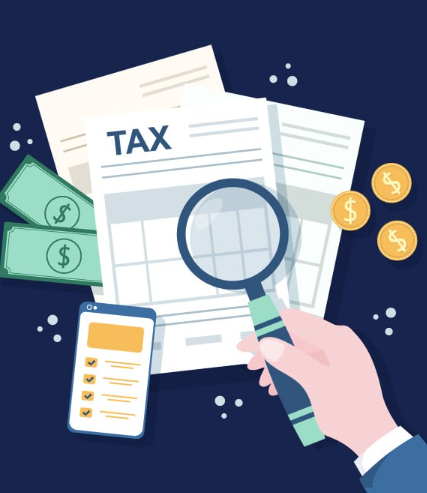Small business owners face a unique set of challenges when it comes to managing their finances, and staying on top of taxes is a crucial part of the equation. While tax planning can seem complex, maintaining accurate and organized business tax accounts is essential to ensure compliance and keep your business running smoothly. Here’s why setting up and managing your small business tax account can benefit your organization at every step.
1. Income Tax Calculation
One of the primary functions of a business tax account is to help you calculate your income tax. Whether you’re managing corporate income tax for a company or personal income tax for a sole proprietorship or partnership, having clear records of your revenue, expenses, and profits makes it much easier to calculate and file your taxes accurately.
2. Sales Tax Tracking
If your business sells taxable goods or services, tracking sales tax is an essential part of your tax management process. Your tax account helps ensure that the correct amount of sales tax is collected from customers and remitted to the appropriate tax authorities, keeping your business compliant.
3. Managing Payroll Tax Obligations
For businesses with employees, payroll taxes are a significant responsibility. The tax account records employee wages, withholdings for income and payroll taxes, and employer contributions. Keeping this information organized ensures that your payroll taxes are handled properly, avoiding any compliance issues.
4. Quarterly and Annual Reporting
Many small businesses must file periodic tax reports, such as quarterly estimated taxes and annual returns. Your tax account helps you track all necessary financial activities and taxes owed, making it easier to prepare and submit accurate reports on time. This is crucial for staying compliant with tax deadlines.
5. Record-Keeping
Good record-keeping is vital for any business. By maintaining an organized tax account, you’ll not only comply with tax laws but also be well-prepared in the event of an audit or inquiry. Accurate records ensure you can back up your claims and avoid any disputes with tax authorities.
6. Estimated Tax Payments
Some small businesses are required to make estimated tax payments throughout the year. Your tax account helps you keep track of these payments to ensure they are made on time. This proactive management reduces the risk of penalties and ensures that your business stays on top of its tax obligations.
7. Tax Deductions and Credits
Tax deductions and credits can significantly reduce your business’s tax burden. Tax accounts are useful for tracking eligible expenses, such as operational costs, equipment purchases, and employee salaries, and help ensure you take full advantage of available credits. This could include credits for things like research and development or energy-efficient investments.
8. Financial Planning
In addition to managing taxes, your business tax account can be a helpful tool for long-term financial planning. Understanding your tax liability and cash flow allows you to make informed decisions about investments, growth strategies, and managing your overall financial health. It’s an essential part of running a successful and sustainable business.
FAQs About Small Business Taxes
Can I Set Up an IRS Account for My Business?
Yes, setting up an IRS account is an important step for your business. It allows you to manage your tax filings, make payments, and track your tax history all in one place. Using the IRS online platform is a secure and convenient way to ensure you meet tax deadlines and remain compliant with regulations.
Can a Small Business Receive a Tax Refund?
Businesses don’t typically get tax refunds in the traditional sense, but they can qualify for deductions and credits that reduce their tax liability. With the help of a tax professional, you can identify credits and deductions that can lower your taxable income.
Do Small Businesses Pay Federal Taxes?
Yes, all businesses are required to file annual income tax returns. While partnerships don’t file income taxes, they do need to file information returns. For most small businesses, federal income tax is paid as you earn revenue, and you may need to make estimated tax payments throughout the year.
How Do I Know if My Business Owes Taxes?
If you’re unsure about your business’s tax obligations, there are several ways to find out. The IRS will send written notices if there’s an issue, or you can check your tax account online. You can also file your tax return, which will tell you the amount owed, or contact the IRS directly.
Conclusion
Managing a small business tax account is crucial for keeping your finances organized and ensuring compliance with tax laws. By staying on top of income tax calculations, sales tax tracking, payroll obligations, and more, you can reduce stress and avoid costly mistakes. Whether you’re just starting or managing an established business, using your tax account efficiently helps keep everything running smoothly and prepares your business for success.



